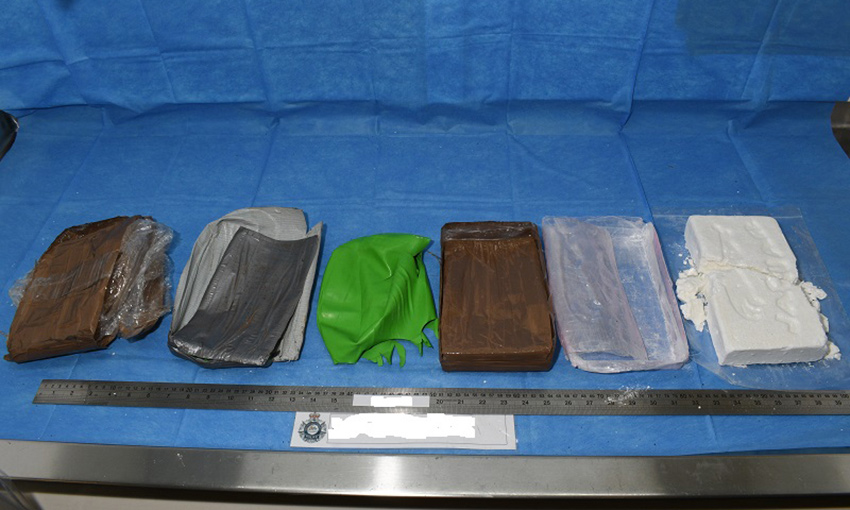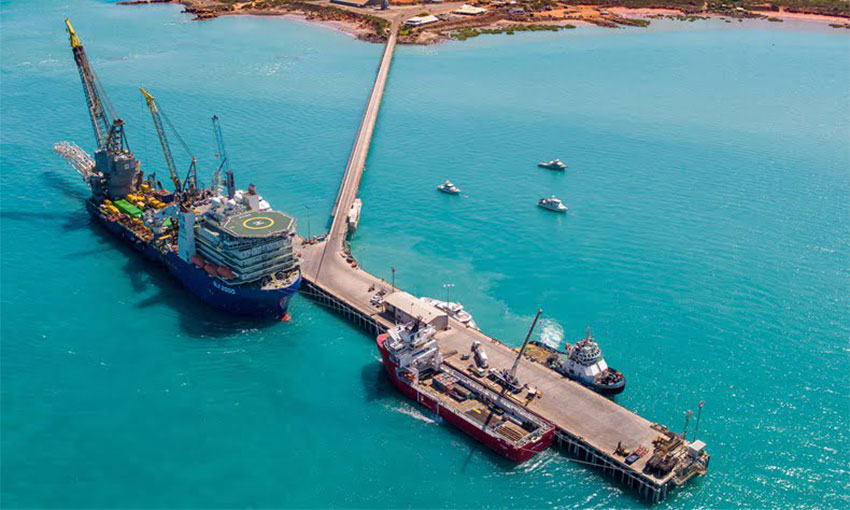AUSTRALIA’s chain integrity depends in part on a relationship between the forwarding and customs broking industry and the Australian Border Force, according to ABF Commissioner Michael Outram.
Mr Outram discussed supply chain security and the importance of legitimate trade at the International Forwarders and Customs Brokers Association of Australia 2022 national conference on 20 May.
He addressed the challenge the industry faces in attracting and retaining new talent, which he said will likely become worse in the coming years.
Mr Outram then launched into a discussion on how ongoing pandemic disruptions have underlined the need for innovation and agility in facilitating legitimate trade while creating a hostile environment for criminal syndicates embedded in the supply chain.
He explained that freight forwarders and customs brokers have a unique position in monitoring and reporting threats to the supply chain, which is valuable to the ABF’s efforts.
“Integrity of the supply chain is a collective industry and community responsibility. It belongs to all of us, and the border is such an important tool for prosperity and trade,” he said.
“Customs brokers and freight forwarders are integral to supporting us in the delivery of our approach and priorities, and one of these is to deter and disrupt criminal syndicates who target our supply chains and border.”
Mr Outram said businesses positioned along the supply chain can assist in broader efforts by identifying questionable shipments or unusual behaviours that may point to the presence of criminal syndicates.
Warehouses, import and export businesses, freight forwarding and customs broking businesses are all potential targets as their respective positions can be exploited to support illicit activity.
The ABF has set up several taskforces such as Operation Jardena to deal with the importation of drugs, illicit tobacco and firearms, but it also focuses on the importation of goods that infringe copyright laws.
“We’re responsible for enforcing intellectual property rights through Australia’s notice of objection scheme,” Mr Outram said.
“The scheme enables us at the ABF to seize counterfeit and pirated goods at the border. Pirated goods directly affect Australian businesses, tax revenue and consumer safety.
“We’re continuing to investigate how we can enhance, through the use of technology and new compliance initiatives, our ability to identify and stop counterfeit goods crossing the border.”
Mr Outram said the way ABF partners with industry and shares information, technology and data is going to help them “regulate the future” of trade.
“That means we have to constantly re-evaluate the paradigm of trust between government [and industry] in order to [establish] a trade system that is both fast and rapid, but at the same time secure.”
A priority for the ABF is the simplified trade system agenda, which enables traders to become more productive and supply chains more transparent so the ABF can better manage risks at the border.
“We know as a matter of fact that transnational serious organised crime groups have already embedded themselves in every point of the international supply chain,” Mr Outram said,
“In some cases, entire companies are being created or purchased with the sole intent of facilitating importations of illicit goods including drugs and firearms.”
The Australian Trusted Trader (ATT) program, administered by the Department of Home Affairs and the ABF, aims to reduce red tape for trusted traders at the border and expedite the flow of imported and exported cargo.
Mr Outram said the program focuses on “shrinking the haystack” to shift the focus to unknown traders who pose a risk to the supply chain.
“Whilst we can continue to try and shrink the haystack, the haystack itself is getting bigger and bigger and so we’ve got to start to understand in the future how we better use technology with industry to assist in the process.”
He said shared technology includes data analytics, the use of artificial intelligence and machine learning, and industry has expressed interest in increasing its participation.
“The ATT has responded to requests from industry for targeted supply chain security education. We will be launching online international supply chain modules in June.”
The modules are expected to be available to all industry stakeholders and intend to strengthen supply chain security and governance within businesses.





